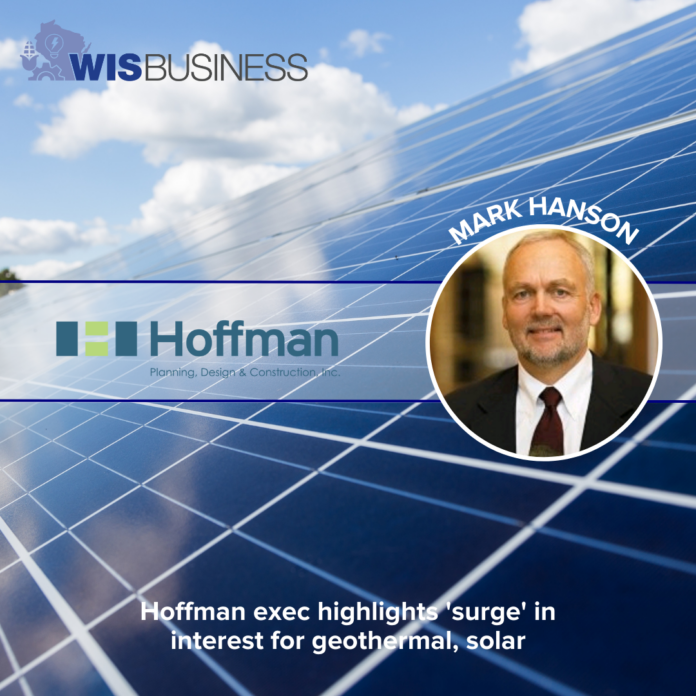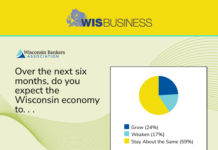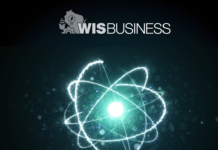An executive with Hoffman Planning, Design & Construction in Appleton is seeing a “real surge” in interest for new geothermal and solar projects as federal incentives reduce related costs.
Mark Hanson, the company’s director of sustainable services, spoke yesterday during the Renew Wisconsin Summit at the Monona Terrace in Madison. He said most of Hoffman’s clients are “watching the budget” closely, so any building upgrades such as rooftop solar arrays need to make sense for them from a cost perspective.
“When you bring in the [Inflation Reduction Act] … we can get 30% on geothermal, a 30% tax credit direct payment,” he said, adding another 10% credit can be earned by meeting certain requirements on American-made components. “You wrap that all in, and you grab your 40% tax credit on that.”
Using a $2.2 million geothermal project as an example, he noted that discount results in a much more affordable development based on front-end costs alone. That’s in addition to $575,000 in funding from an Office of Energy Innovation grant program, he said.
“It was sort of a no-brainer … you’ve got to use the IRA incentives to go in this direction,” he said.
Lauren Reeg, a UW-Madison graduate and senior associate with the Rocky Mountain Institute in Colorado, yesterday said Wisconsin is expected to receive about $149 million in IRA rebates, in addition to other flexible funding sources for building electrification.
And though the federal legislation’s home energy rebates aren’t yet available, according to Focus on Energy IRA Programs Manager Dylan Crye, the state energy efficiency program is urging interested residents to “go do it now.”
“There are a lot of programs and resources available now if you want to electrify,” he said during the conference.
Crye shared details on a number of updated tax credit programs available for tax years 2023 through 2032, including those covering 30% of the cost for solar, wind turbines, fuel cells, battery storage, geothermal heat pumps, insulation materials and more. While cost caps exist for more than half of the examples he shared, many of the tax credits have been expanded compared to tax year 2022.
“You can stack these with the Focus on Energy rebates as well,” he said. “If you’re at all thinking about electrification, go ahead and pull the trigger.”
Meanwhile, Elevate Director of Policy Heather Allen said the nonprofit group is working to support sustainability upgrades for a relatively underserved market: multi-family affordable housing complexes. She shared details on the Lac du Flambeau Elk Point West Apartments complex, a tribally owned building that’s installing solar and battery storage as well as a heat pump system.
The project is expected to reduce the building’s fossil fuel use by more than 70%, resulting in $3,400 in annual savings from solar alone.
“Take this project and multiply it by 10,000 and then you’ve got the state of Wisconsin shifting its carbon on multi-family buildings,” she said.
–By Alex Moe






